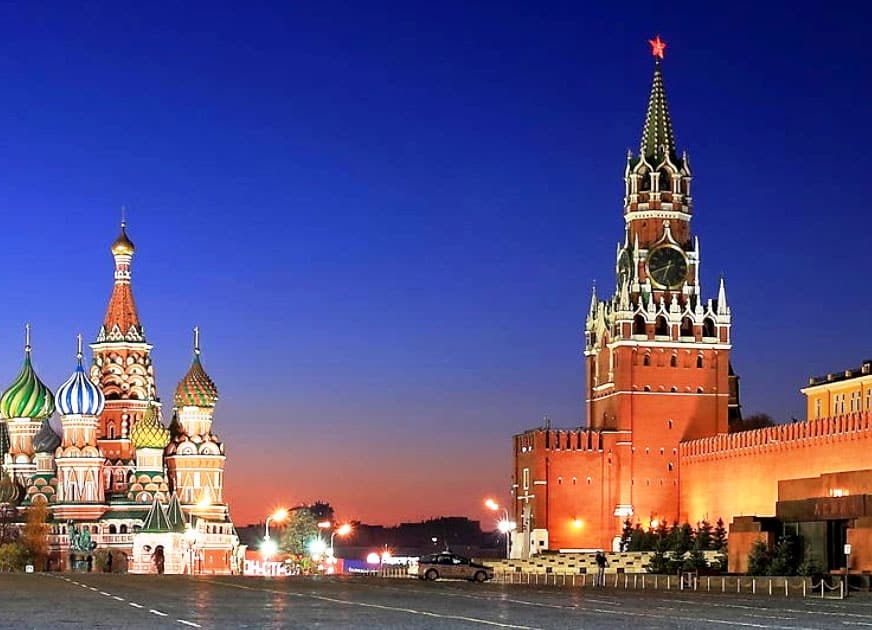
Russia is not the perfect place for business, but it’s a lot better than the casual impression I had before visiting Moscow and meeting with many business and academic professionals.
Business leadership in Russia is transitioning from people raised in the Soviet era to people raised post-Soviet. The change in attitudes affects many facets of the country and constitutes the best argument for opportunity in the country.
The communist era is not completely gone, but it’s certainly going away. One westerner who travels regularly to Russia told me, as an example, that the passport control officials used to be rude, but now are friendly and courteous. I told him that one surly official remained, based on my personal experience. But I generally found helpful, friendly people in Moscow, and I heard that attitudes were similar in other cities.
The old Soviet joke among workers was “They pretend to pay us; we pretend to work.” But companies are more competitive now, focusing on productivity and efficiency. An executive at one large financial institution said that it used to take a month for a single document to go from one department to another. Now, the overwhelming majority of their documents are transmitted electronically.
Another executive I spoke with noted the emphasis on efficiency, ridding companies of deadwood. The implication is that if you need services or products for your Russian office, you will be able to find them at a competitive price.
Customer service has been dialed up in many ways. The woman who ran human resources for the World Cup explained, at a panel discussion I watched, how 20,000 volunteers had been trained in customer service, along with all the concession employees at the stadiums. Those employees will retain at least some of that training in the years to come, setting higher standards for customer service than previously were expected.
The workforce is very well educated, second only to Canada for the highest percentage of population with post-high school education, according to OECD statistics. This is a first-world country, but note some educational challenges below.
The cost of labor in Russia is not cheap compared to many Asian countries, but it’s a bargain against any western European alternative. Russia’s unemployment rate is the lowest it has been in many years, and a little lower than the OECD average, but not nearly as low as in Japan.
Russia is a large and varied nation, I was reminded, with poorer people in the eastern regions and rural areas.
Corruption seems to be less common than I had expected, though I may not have gotten the truth from all of my contacts. Certainly the transitional era, in the 1990s, was the high point of bribery and violence. Competition back then might be called cutthroat, though murder by gunfire and bombing was more common than knives to the neck. Foreign visitors were advised to hire bodyguards, and hotels protected themselves with machinegun-toting security staff. Read Once Upon a Time in Russia for more on this era.
Business seems to be based on traditional competition over price and quality rather than political support, but worries persist. One high tech entrepreneur in Russia who also works globally thinks that the smart Russian programmers hesitate to locate their start-ups in Russia because intellectual property can easily be seized by politically-connected competitors. There are certainly tech companies in Russia. Yandex is the largest, with the top market share in search but also powering ecommerce and transportation services. But Yandex is actually incorporated in the Netherlands.
Brain drain of the top Russians in math and computer science is partly due to this lack of start-ups at home, plus plenty of opportunities abroad.
Although higher education is widespread, quality was questioned by some. The top students from across Russia go to the top universities in Moscow, and now increasingly to top schools around the world. Professors told me, though, that the country’s second-tier universities were much weaker than in other countries. That is, the Russian equivalents of North Carolina State or the University of Oregon are much lower in quality than in other developed countries.
Sanctions by the Trump administration worry people involved in international business in Russia, but with little effect. The Washington Post confusingly wrote, “The sanctions have stunted Russian economic growth and sapped the urban middle class of wealth and opportunity. But with unemployment low and inflation in check, the sanctions so far have done little to undermine the country’s fundamental economic stability.” Moscow seemed prosperous to me. The latest national unemployment rate was a record low 4.7 percent, with wage growth significantly higher than overall inflation. GDP growth dropped with oil prices in 2015, but has rebounded lately.
Sanctions are most likely to impact international trade. Transactions within Russia will be unconstrained. Foreign companies considering business in Russia should track the sanctions issue carefully, as changes are coming quickly.
Russia presents opportunities. It’s a large economy, with a well-educated workforce. It probably has the largest quantity of inexpensive college graduates in the world. Corruption is a greater business risk the more that a company is locked in to Russia through major capital expenditures or acquisition costs. For a company that can exit cheaply, corruption probably is a manageable concern.
Comments
Add comment